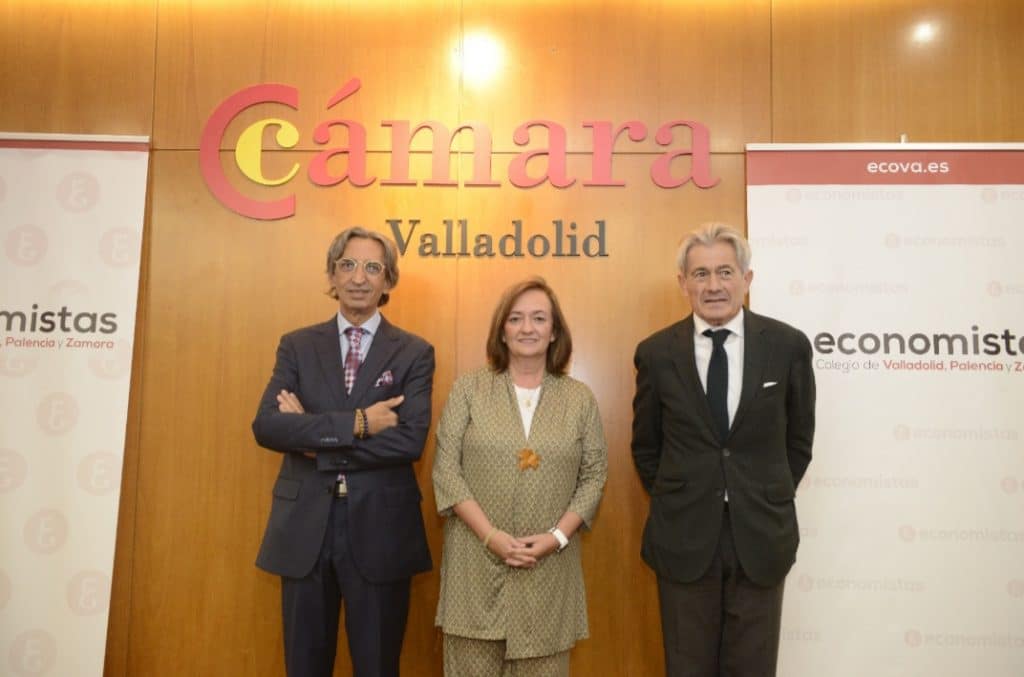The President of the Independent Authority for Fiscal Responsibility (AIReF), Cristina Herrero, participated on Tuesday in the inauguration of the new governing board of the Association of Economists of Valladolid, Palencia and Zamora and stated that the risks that were perceived a few months ago on the national and, above all, international stage are now materialising. This circumstance negatively affects AIReF’s economic forecasts, while the revenue forecasts continue to improve. In light of this divergence, AIReF is calling for prudence and predictability of action at all tiers of government.
AIReF had already revised its growth and inflation forecasts in April. Since then, it has maintained forecast GDP growth at 4.2% in 2022 and inflation at 7.8%, in accordance with the Report on Budgetary Execution, Public Debt and the Expenditure Rule for 2020, published in July. Looking ahead to autumn and 2023, the risks are materialising, particularly in the field of energy, with cuts in the supply of Russian gas. Furthermore, the shortage of supplies of raw materials and food persists, inflation is proving to be more persistent and is becoming more widespread, and consumption is being negatively affected by the worsening of financial conditions and the reduction in the rate of savings generated during the pandemic. In addition, there is uncertainty about the degree of execution of the Recovery, Transformation and Resilience Plan (RTRP).
In the Report on exceptional circumstances published at the end of July, AIReF already pointed to GDP growth of around 2% in 2023 in line with other organisations and without taking into account a total cut-off of Russian gas supplies. Since then, the economic outlook has not cleared up, rather the opposite. The dynamism of tourism and employment have allowed growth to continue in the second quarter, but the weakness of consumption, the loss of confidence and the uncertainty in the international scenario are hampering growth.
In the fiscal area, however, despite the active response to the energy crisis, the evolution of the General Government deficit appears to be positive. AIReF estimates that the deficit will fall from 7% of GDP in 2021 to 4.5% this year due to the withdrawal of COVID measures (-2.3 points) and, in particular, the growth in revenue associated with the dynamism of the tax bases. However, this effect will only occur in the short term, since Spanish finances are showing a series of underlying imbalances that place Spain in a vulnerable fiscal position.
AIReF’s recommendations
In this context, AIReF has recommended that the General Government as a whole should take into account the medium-term implications of current fiscal policy decisions. In addition, it has also recommended on numerous occasions a medium-term fiscal strategy to achieve a level of deficit that will bring the debt back to sustainable levels. However, this recommendation is not being heeded and the reference rates set may give the impression of fictitious fiscal margins, which will, in turn, lead to decisions for permanent expenditure without permanent funding.
In addition, the role that the Central Government has taken on in the crisis to shield the other General Government sub-sectors is affecting the financial flows between the Central Government and the Autonomous Regions, thus leading to a more favourable fiscal position of the ARs than before COVID-19. For example, the revenue of Castile and Leon from the financing system could grow by 20% and 8% in 2023 and 2024. In this context, AIReF has recommended that the 2023 budgets be framed within a medium-term fiscal strategy that considers the structural or cyclical nature of revenue and expenditure, which applies the existing excess financing at the end of 2021 and that adjusts future borrowing to actual financing needs.
According to Cristina Herrero, the benefits of a medium-term fiscal strategy are applicable at all tiers of government, since it is important to minimise the sources of uncertainty and provide predictability. Finally, the President noted that Castile and Leon is one of the ten Autonomous Regions that have commissioned AIReF to evaluate their spending.







